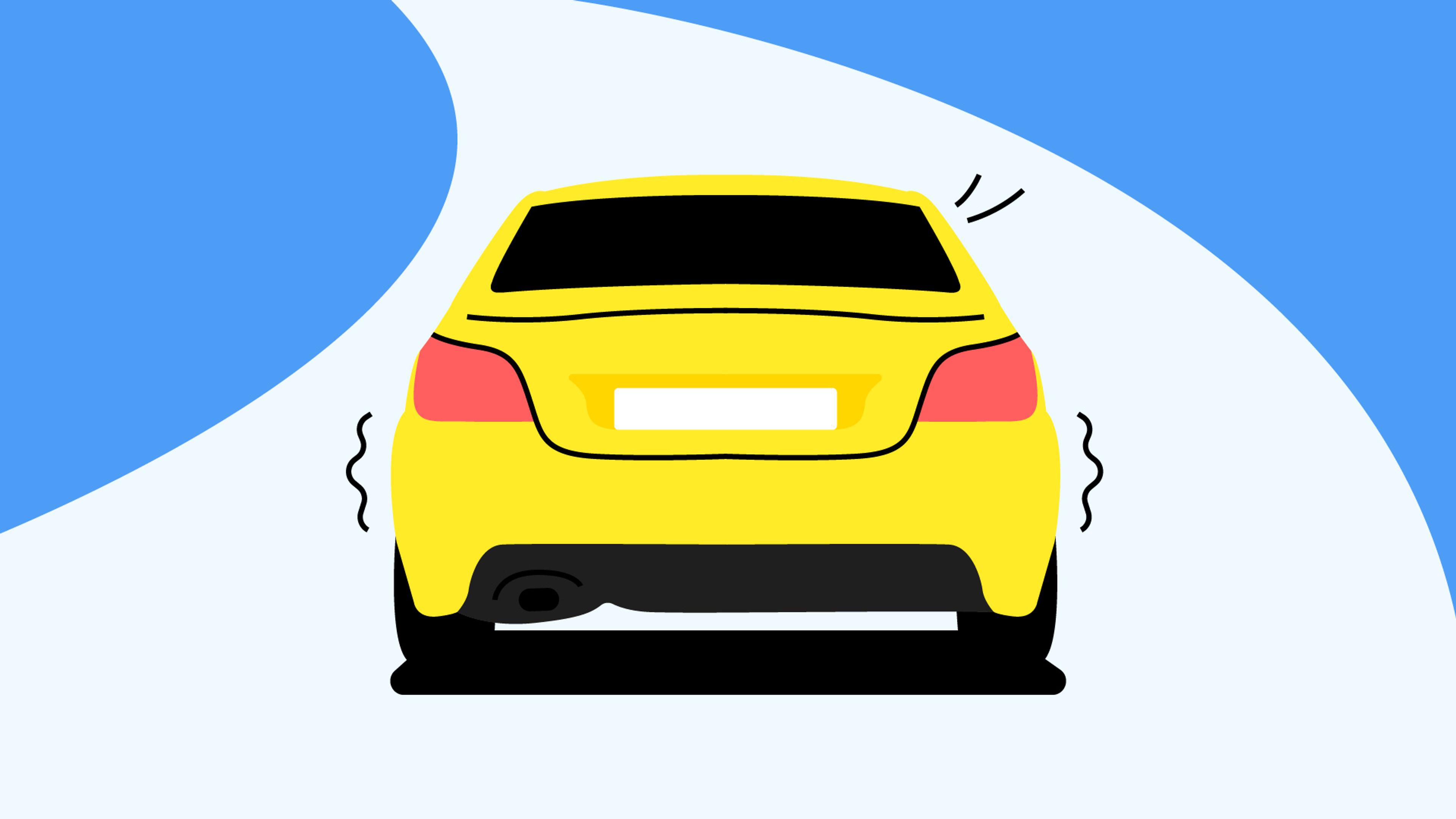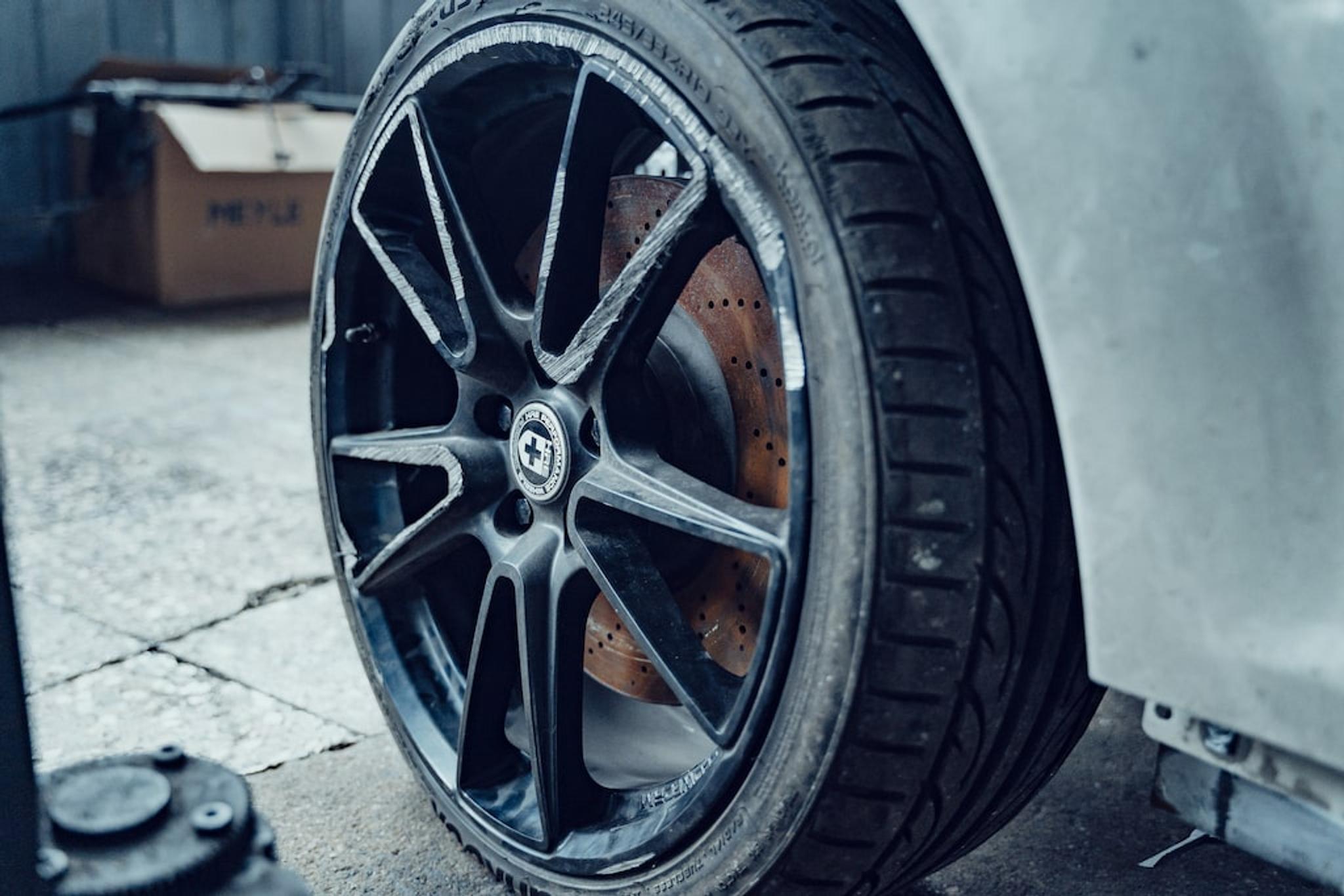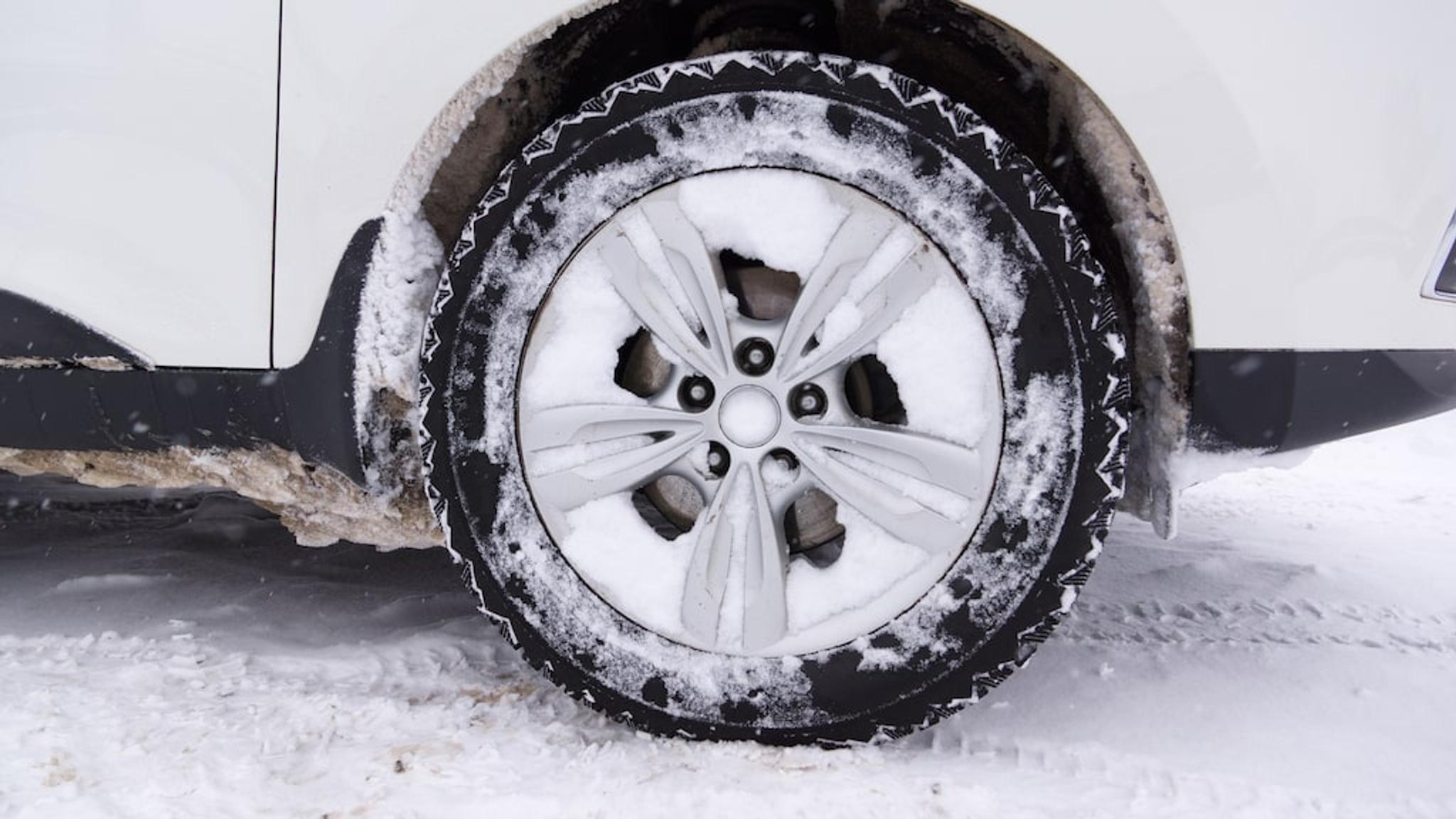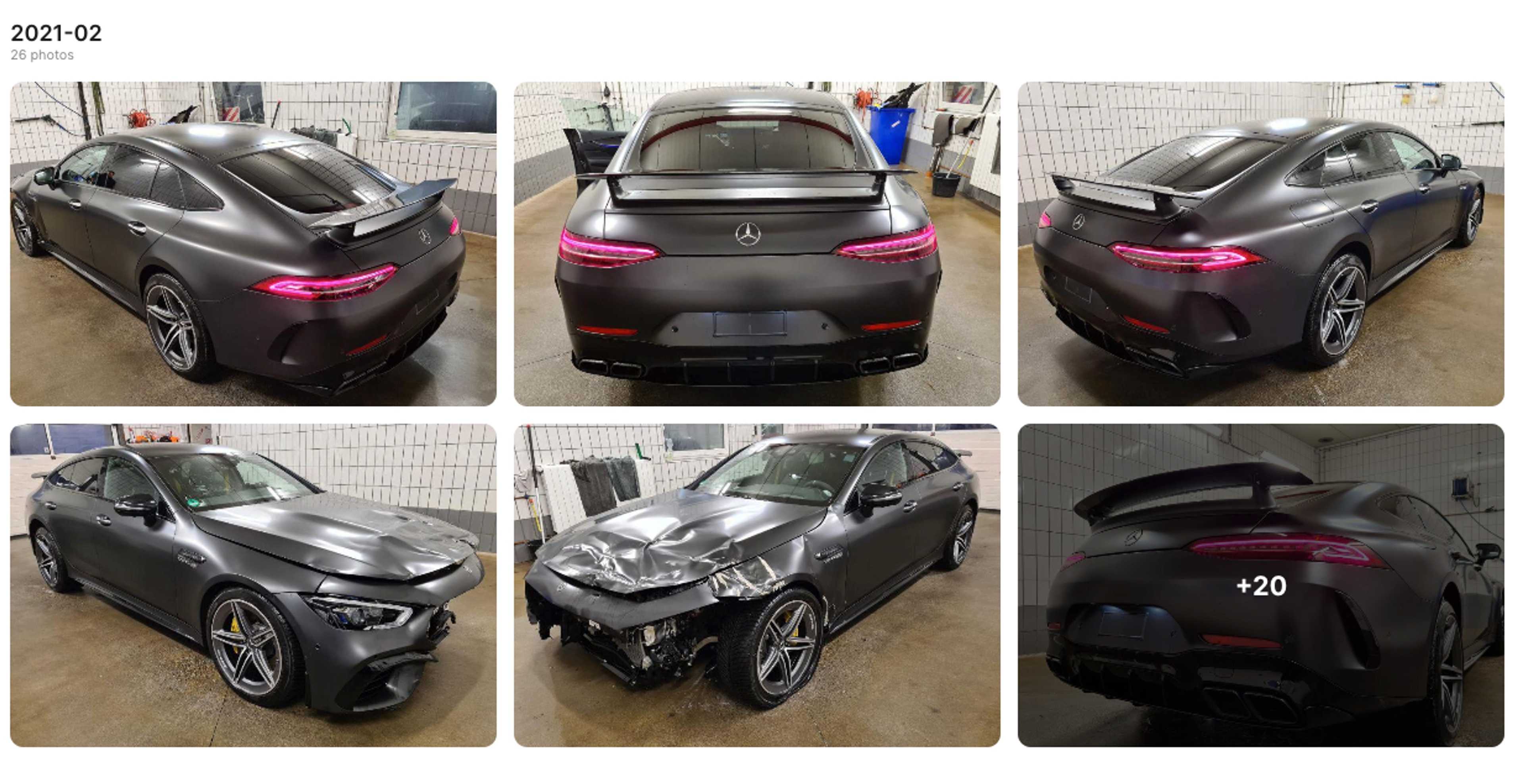05/25/2022
Why is my car shaking?

Since rubber mounts reduce vibrations from the engine and tires, modern vehicles are quiet and comfortable. Besides, everything that spins is balanced – rims, tires, axles, and flywheels, making it easy to notice any shaking in your car. While small vibrations may appear even when minor issues occur, they can devolve into unbearable shaking.
These annoying issues are often hard to discover, as shaking may occur when driving at high speed, while accelerating, or braking. Before you stress about possible expenses, let's take a look at the most common shaking-related problems.

Used cars have dark secrets
Reveal them all! Just enter a VIN code and click the button:
When starting the engine
During an engine start, fuel gets inside a cold combustion chamber, the starter motor draws an enormous amount of current, and every bit in the car's mechanical and electrical systems has to wake up.
While some shaking is normal when starting your engine, excessive vibration may indicate that you have some problems with your vehicle.
Fuel delivery problems
An engine needs a big gulp of fuel to start. When your car has problems with fuel delivery, the engine may have a hard time starting but run fine afterwards. This may indicate a few things:
- insufficient fuel supply
- worn-out parts, such as your fuel filter, fuel pump, or injectors
Weak battery
Almost all systems in a modern car rely on electricity, including the fuel pump, injectors, and various sensors. If there's not enough juice in your battery, the engine may start acting jerky.
When braking
If pressing the brake pedal causes vibration and ruins your smooth highway cruise, you need to address this problem for your own safety. Brake discs, tires, and some suspension elements get a lot of pressure as you brake, so they wear down over time.
Here are a few common braking-related issues that may cause your steering wheel to shake and indicate it's time for a brake job.
Warped brake rotors

Brake rotors are made of hard steel, which prevents deformations and various damages. However, a common issue with brake rotors is warping under extreme temperature differences. For instance, driving through a deep puddle after braking hard almost guarantees a warped brake rotor.
Some drivers fix this problem by machining rotors but it doesn't always help, so the best solution is to replace them.
Bad front-end alignment
The wheel alignment significantly impacts comfort, stability, and safety. When wheels misalign, they don't spin together with the moving trajectory of a car, and instead are dragged all the time. Bad alignment results in pulling your car to one side and premature tire wear, but it can also cause vibrations when braking.
By the way, if a car has been in a severe accident, its geometry may be damaged. If the restoration was done poorly, the wheels may misalign and suspension parts may wear out prematurely. That’s one of the reasons why getting a vehicle history report before buying a used car is essential.
When accelerating
Acceleration stresses your vehicle the most – the engine, suspension, transmission, and tires are being pushed to their limits. If you feel your car shakes mostly while accelerating, the problem usually lies in the transmission system.
Worn-out drive shaft mounts or CV joints
While front-wheel-drive cars only have two axle shafts, rear-wheel-drive models have an additional drive shaft, and AWD cars use four axle shafts and one main drive shaft. There are also CV and ball joints, multiple mounts, and bearings. If any of these wear out and loosen, chances are they will wobble under pressure (in other words, during acceleration).
Broken motor mounts
The car engine stays in place thanks to hard rubber mounts that also absorb vibrations. Usually, there are 3-4 motor mounts in a single car. If one of them fails, various engine and transmission parts can break due to excessive engine movement. Vibration during acceleration may indicate your engine mounts are broken and you should look into it.
When turning

Vibrations when making a turn are not very common. However, when you turn, you put more pressure on the outer side of your car, meaning tires and suspension have to withstand more pressure. And there's also the steering mechanism, which keeps the wheels in your desired position.
There are two reasons why your car or steering wheel shakes when turning: damaged tires or power steering system problems. Inspect the tires for bulges, measure the tire pressure, and check the power steering fluid level. If everything looks fine, you should visit your mechanic because the ball joints, steering wheel mechanism, or other bits could be worn out.
Wheel bearings also play an important role here. For example, when the front wheel bearings wear out, you'll hear an unpleasant noise when making a turn. While it's more of a humming than a vibration, you should fix it as soon as possible to avoid breaking the bearings.
At high speeds

The best way to test the balancing of your car's wheels, transmission, and all other spinning parts is by taking it for a drive down the highway. Usually, vibrations occur at about 80-100 km/h – the faster you go, the worse the shaking gets.
Unbalanced tires
Even the most expensive wheels and tires have to be balanced. It's recommended to rebalance your car tires at least twice a year but seasonal tire users often ignore this suggestion. As tires wear down, their weight distribution gradually changes, resulting in vibrations at higher speeds.
Damaged shafts and support bearings
The condition of the drive shafts can be evaluated during acceleration and high speeds. When shaking occurs during acceleration, the part may just be slightly worn out, but constant shaking at high speeds indicates that you have to take action. Drive shafts are stiff and rugged but they can bend in an accident.
The support bearing is located in the middle of the drive shaft and it's a common source of annoying vibrations. When it’s worn out, the rubber doesn't hold the bearing properly, resulting in wobbling.
A defective tire or dirty wheels

Tires are the single most important part of your car, affecting comfort, safety, road noise, and many other things. When tires are worn out unevenly or have bulges and other defects, you'll likely feel them while driving.
Also, if there's snow or dirt inside your wheels, vibrations are almost guaranteed. When a problem occurs, you should stop the car, inspect the tires, and check if there's any dirt, ice, or packed snow inside your rims.
While idling
Excessive vibrations can occur even when idling. Sometimes, shaking may disappear when driving but you know something’s wrong right after stopping the car. When in neutral, the engine is the only thing that’s spinning, so it's likely that the problem lies under the hood.
Engine problems
Engineers precisely calculate weights and dimensions of each part of an engine to maintain balance and reduce vibrations to a minimum. However, various problems can ruin this balance:
- Worn-out spark plugs, bad spark plug wiring, and damaged ignition coils
- Clogged fuel injectors
- Dirty fuel or engine air filter
- Vacuum leak
- Faulty sensors
Usually, these problems come shoulder to shoulder with a loss of power, excessive smoke, and various warning dash lights. Get your car checked as soon as possible to avoid any further issues.
Motor mounts
Thanks to engine mounts, rubber separates metal engine parts from the car's frame. However, when one of them breaks, the engine starts to wobble, resulting in excessive noise and shaking. You shouldn't drive with broken motor mounts, especially when it's a relatively inexpensive fix.
Remember that vibrations hurt your car's suspension and reduce traction. Not to mention that your vehicle may be unsafe to drive. Instead of asking "why is my car shaking?," keep your car in tip-top shape and drive safely!
Was your car damaged in the past?
Severe car accidents damage the car’s geometry. Poor restoration work leads to misaligning wheels, faster suspension wear, and shaking.
While you may pay top dollar to have a safe and sturdy car, those who plan to sell the damaged vehicle often cheap out on repairs.

Drivers often mistakenly believe that their vehicle is accident-free because many used car sellers hide the actual car’s history instead of being honest and reducing the price. People often buy overpriced used cars that aren’t safe to drive only because they trust the seller.
Nowadays, you don’t need to put your life in the hands of scammers if you check the car’s history before buying it. Vehicle history reports help to prevent asymmetrical information cases in the used car market, making it more transparent. carVertical gathers data about cars from vehicle inspection centers, dealerships, police, and other trusted sources – all you need is a car’s VIN number, usually located at the bottom of the windshield.

Check your VIN
Avoid costly problems by checking a vehicle's history. Get a report instantly!
Remember that vibrations hurt your car’s suspension and reduce traction. Not to mention that your vehicle may be unsafe to drive. Instead of asking “why is my car shaking?,” keep your car in tip-top shape and drive safely!
